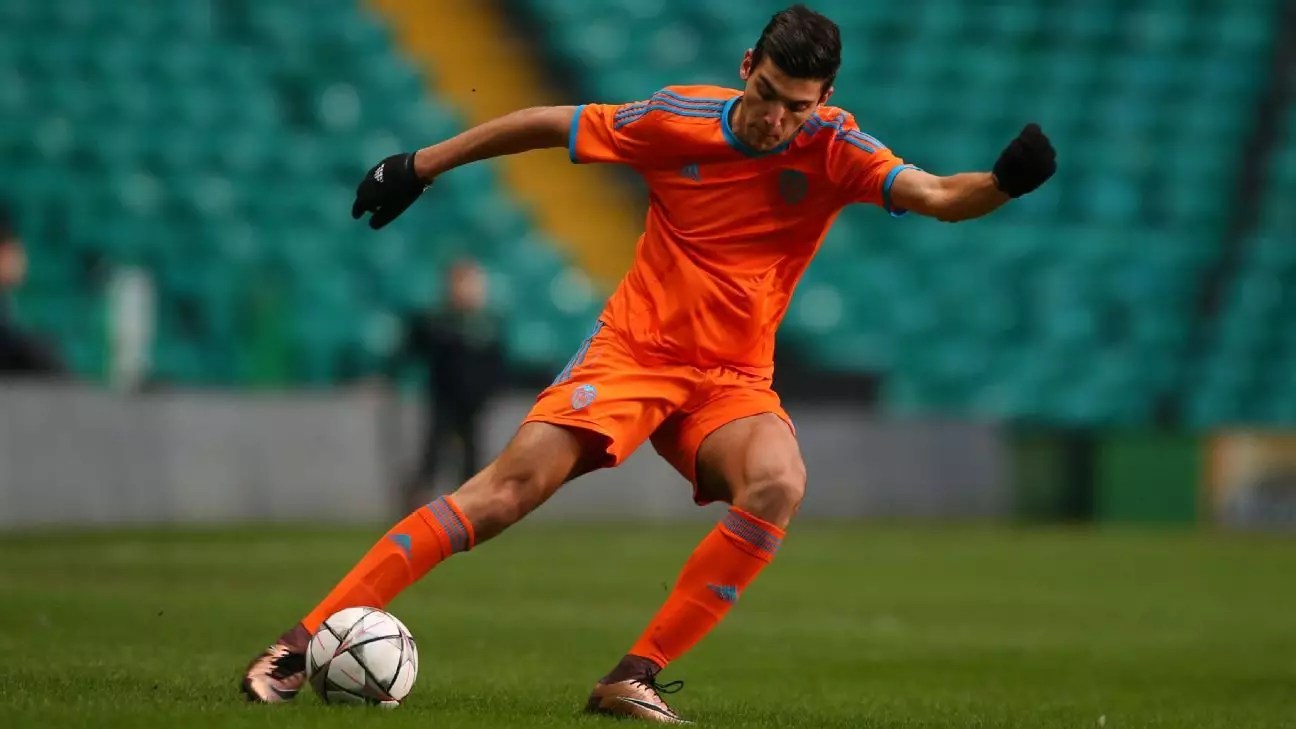In the realm of professional sports, controversies often surround athletes, impacting not only their reputations but also the organizations they represent. Valencia forward Rafa Mir finds himself at the center of such a situation, having recently returned to training following an alleged serious criminal charge. Mir’s case offers a profound look into the balance between personal accountability and institutional response in the world of football.
The circumstances surrounding Rafa Mir’s return to the Valencia squad are steeped in serious allegations. Arrested by Spanish authorities for an alleged sexual assault, Mir’s actions have raised significant concerns about player conduct and ethics within professional sports. The swift disciplinary action from Valencia speaks volumes about the club’s stance on maintaining a professional image. Upon his return, Mir expressed regret towards his teammates and Valencia’s supporters for “failing to comply” with professional expectations. These words, while essential, further underline the need for athletes to not only adhere to physical standards on the playing field but also maintain moral integrity off of it.
Valencia coach Ruben Baraja’s decision to reinstate Mir after a week of suspension elicited mixed feelings. Mir’s inability to participate in the upcoming matches serves to illustrate the club’s commitment to discipline while recognizing the potential for personal growth. However, the reinstatement raises questions about the broader implications of such actions. Should an athlete facing serious allegations be allowed back into the fold so soon? Baraja emphasized that Mir’s situation represents the possibilities of accountability and redemption, signaling a potential shift in cultural understanding within sports regarding mistakes and their consequences.
Balancing Punishment and Second Chances
The nuances of punishment, especially in sports where public image is paramount, require critical examination. Baraja’s approach—allowing Mir to work back towards acceptance while maintaining a disciplinary stance—highlights a concept often overlooked in sports management: the human element. Athletes are more than just performers; they are individuals capable of error. The coach acknowledged this by asserting that indiscipline must lead to consequences, yet he also posited a key element in fostering a growth-oriented environment through second chances. This underscores a significant dilemma within the sports community: the tension between upholding standards of behavior and fostering a rehabilitative process for those who err.
The Path Forward
As natural as the repercussions of disciplinary actions may seem, the true challenge lies in how organizations navigate these turbulent waters. Valencia’s plan for Mir includes isolated training and a gradual reintegration into the team environment once he has sufficiently addressed the consequences of his actions. This can serve as a model for other organizations via commitment to ethics without forsaking the potential for personal reform. It remains to be seen whether this approach will truly benefit Mir, Valencia, or the greater football community.
Rafa Mir’s return to Valencia following allegations of sexual assault encapsulates a complex interplay of personal accountability, institutional ethics, and the quest for redemption in professional sports. As monitoring bodies and clubs strive to uphold integrity, the reactions to such incidents will significantly shape both the immediate future of the athlete involved and the cultural framework of the sport as a whole.


Leave a Reply